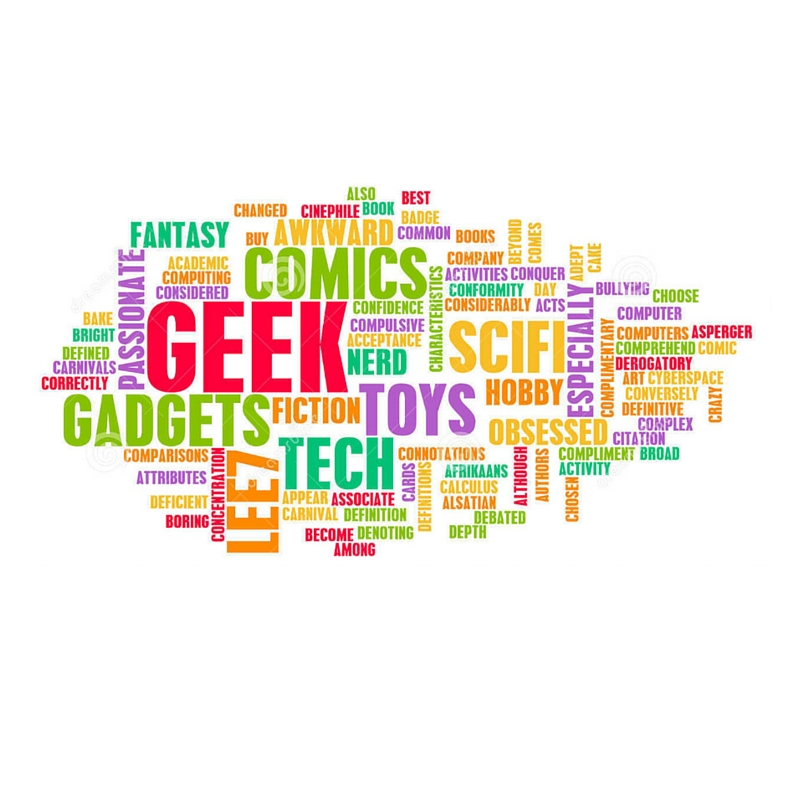
It’s a good time to be a geek.
Everywhere you look, geek culture is booming. The movies based off Marvel Comics franchises have pulled down over $19 billion, video games sales hit $91.5 billion in 2015 alone, and sci-fi and fantasy have been the top-selling book categories for years. For the generation that has grown up with Harry Potter, XBox 360, and smartphones, these things are and, to their eyes, have always been cool, or at least acceptable.
Let me assure you this has not always been the case.
I am 41 years old, the perfect age to ride the cusp of technology from childhood on. I remember playing endless games of Oregon Trail on monochrome-green Apple IIe screens in the computer lab in grade school. I got to experience how Ronald Reagan’s changes to the Federal Trade Commission turned Saturday morning cartoons into 30-minute geeky advertisements for toys. I played Pong, Asteroids, Breakout, Pac-Man, all of them as they released. I had a front row seat (and have the packed-away issues to prove it) to the great shift in comics storytelling. In many ways, the 1980s were the Golden Age of geekdoms, where much of what is beloved today had its roots, and that was my childhood: Atari, Star Wars, Iron Man, Tolkien, and Transformers.
But it was not much fun to be a geek back then.
I may have been part of the first electronics generation, but these entertainments were seen as fads, fringe, or just plain weird by most people. My parents, part of the Silent Generation, refused to get cable TV, a microwave, or any video game system past a 1970’s solid-state Pong rig. My friends couldn’t understand why I would rather read than play outside. My schoolmates thought Transformers were cool but didn’t understand my obsession with the Macross Saga and Battle of the Planets. I found a small clique of similar outcasts and we spent our weekends playing 2nd Edition Dungeons & Dragons and watching Monty Python marathons, but our entertainment obsessions meant we were on the outside of the popular world looking in. We claimed we didn’t care, but we all did.
The shift, I feel, began in the mid-90s. By that time I was in college and in my short-lived goth stage (never dyed my hair black, though), but I was still a geek at heart. The Internet was just becoming a thing, and with it the realization that it created a space where like-minded people could find each other. BBSs and AOL chatrooms became meeting halls for the socially awkward, where interactions were kept quite literally under glass and even the shyest among us could find a voice, even if it was just in text. In the roleplaying game scene, this was the era when live-action roleplaying, or LARPing, exploded, where people would go beyond paper and dice and actually become their characters for a day or evening or weekend. Suddenly we geeks had a social crowd of sorts, though the tabletop purists despised it. Looking back, it is amazing how big it got. I attended a weekly gathering for White Wolf’s vampire LARP that consistently drew 150-200 people, and once had over 350 show up.
As the internet matured, LARPing fell by the wayside, replaced by a black hole of geekiness that even I have never ventured down: massively multiplayer online games, or MMOs. Starting in 1997 with Ultima Online (though others existed before that), suddenly geeks had an entire visual world to meet up at and hide in. Stories abounded in the early 2000s of people getting addicted to MMOs, to the point of losing jobs, relationships, and in a few cases, even suicide. This level of obsession has even been lampooned in The Guild, the Web TV show that launched the career of Felicia Day.
But if there is one event, one turning point where geek culture and mainstream culture truly began to merge, it can be described in one name: Harry Potter. Suddenly, a new generation of geeks had a rallying obsession, a new generation of parents who grew up in a much more geek-friendly era had a tool for getting their kids to read, and we who had grown up on Tolkien, Brooks, and Lewis finally had a common ground with the rest of the world. This explosion of interest in fantasy got Hollywood got involved, and soon after, Peter Jackson’s adaptation of Lord of the Rings went on to win 17 Oscars. With this, geek culture finally went mainstream.
Perhaps I am a little bitter that today’s geeks don’t have the uphill climb I and my generation had, but not much. A whole new slew of problems have crept into geek culture that I never had to deal with, from the addiction problems I mentioned above to sexual harassment in the video game industry to the fake geek girl idiocy. But when all is said and done, I’m just ecstatic that all these things I’ve loved all my life are no longer denigrated as shameful or stupid.
Geek for life, man. Geek for life.